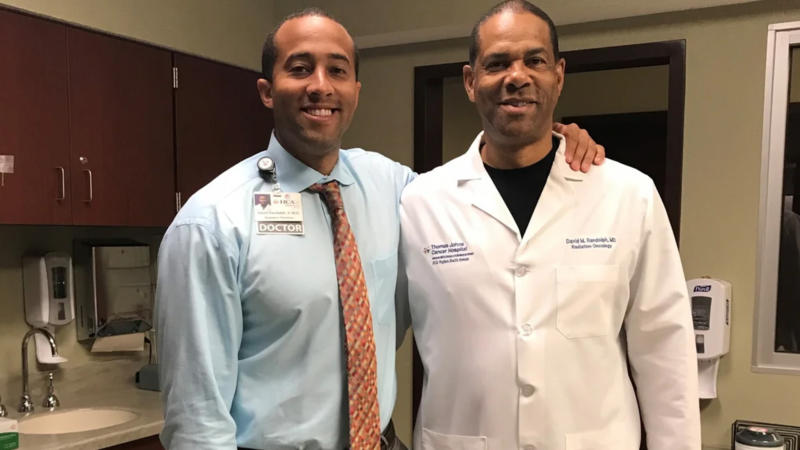This father-son duo is transforming the lives of cancer patients right alongside each other.
After Dr. David Randolph II was moved by the impact his father had on patients, he realized he also wanted to become a vessel to improve the quality of life for others, Inside Edition reports. Eventually, he and his father, Dr. David Randolph, became radiation oncologists at the Johnston-Willis Hospital in Richmond, VA.
“I was able to witness the impact that he had, and see how he was able to help these people and that’s what really started my interest in medicine — just seeing that you can have anything in the world that you want, but if you don’t have your health, you don’t have anything, and being able to help improve or restore people’s health is something that’s very meaningful,” David Randolph II of the father-son duo said, according to Inside Edition.
The Family Doctors Keep Their Patients' Needs First
The Randolph family learned firsthand the gruesome reality cancer can bring to not only the patient but to the supporting family members since Dr. David Randolph’s father passed away from lung cancer.
Due to their experience of caring for their loved one, the doctors understand the value of fostering an environment where their patients can feel safe, knowing their needs will be met.
“People do better. People do better when they have faith in their physicians,” said Randolph II, according to Inside Edition. “And if you approach them with compassion, they have faith in you. And then the studies have shown that they do better, that they believe they will do better, they do better.”
The Doctors Understand The Value Of Representation
The family doctors also recognize the importance of being Black men in a field that underrepresents the Black community.
According to a UCLA STUDY, the proportion of Black physicians within the U.S. has increased minimally over the last century. This is pivotal as it offers a solution to resolve medical mistrust circulating within communities of color and could also dissolve the plaguing disparities for cancer-related care, as only three percent of medical oncologists are Black, Inside Edition reports.
Outside of patient care, the doctors are making sure to influence marginalized communities through their roles in executive communities at Johnston-Willis and by sharing medical insights through informational sessions.


